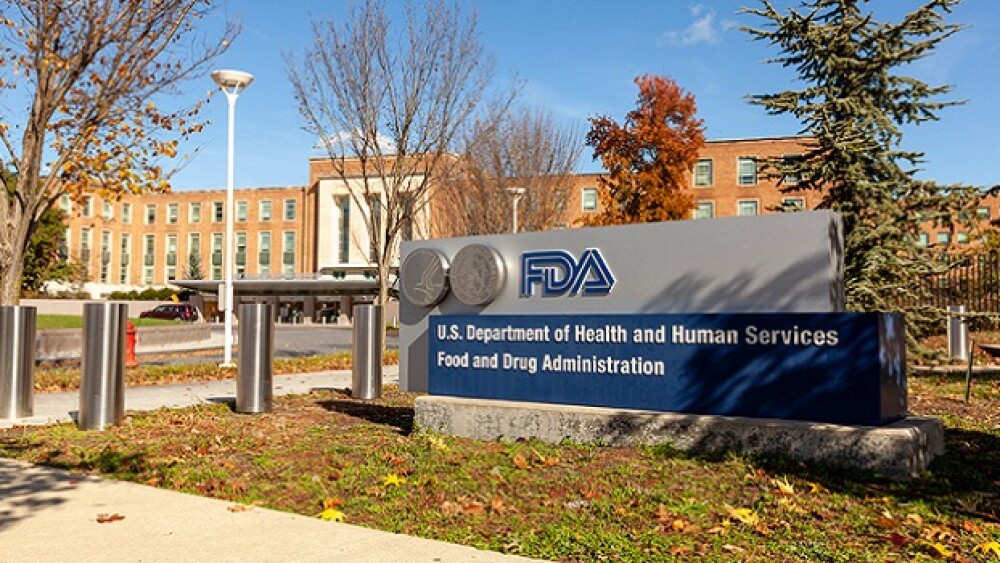ArQule, Inc. announced final results from the phase 1 study for ARQ 531, an orally bioavailable, potent and reversible dual inhibitor of both wild type and C481S-mutant Bruton’s tyrosine kinase in patients with relapsed or refractory hematologic malignancies at the American Society of Hematology 2019 Annual Meeting & Exposition in Orlando, Florida.
- ARQ 531 demonstrates substantial anti-tumor activity and manageable safety profile
- Eight of nine evaluable CLL patients initially dosed at ≥65 mg experienced a Partial Response (PR)
- Five of five CLL patients that were evaluable at the third scan (cycle 9) are durable PRs and continue on therapy
- Three of six evaluable Richter’s patients dosed at 65 mg experienced a PR
- Call with management scheduled for today, December 9, at 8:15 am EST to discuss these results
BURLINGTON, Mass.--(BUSINESS WIRE)-- ArQule, Inc. (Nasdaq: ARQL) today announced final results from the phase 1 study for ARQ 531, an orally bioavailable, potent and reversible dual inhibitor of both wild type and C481S-mutant Bruton’s tyrosine kinase (BTK) in patients with relapsed or refractory hematologic malignancies at the American Society of Hematology (ASH) 2019 Annual Meeting & Exposition in Orlando, Florida.
“The final phase 1 data set confirms the potential utility of ARQ 531 for the treatment of these heavily pretreated CLL patients. We were excited to observe such deep and durable responses at a well-tolerated dose in this highly refractory population,” commented Dr. Brian Schwartz, Chief Medical Officer of ArQule. “In addition, the three responses we observed in Richter’s Transformation patients were a welcome outcome and allowed several patients to transition to potentially curative therapies.”
“ARQ 531 was selected and extensively tested preclinically to address the emerging therapeutic needs of patients who have become resistant to covalent BTK inhibitors in a broad set of hematologic malignancies,” commented Dr. Jennifer Woyach, Associate Professor of Medicine at The Ohio State University and the Principal Investigator of the study. “It is tremendously gratifying to witness the emergence of a potential therapeutic for patients with such a high degree of unmet need, such as C481S-mutant CLL and Richter’s Transformation, and beyond. The data presented in this poster provide compelling proof-of-concept for this novel class of reversible BTK inhibitors.”
The reported data are from the phase 1, open label, single arm dose escalation study and include patients (n=47) initially dosed at levels of 5, 10, 15, 20, 30, 45, 65 and 75 mg once a day with relapsed or refractory chronic lymphocytic leukemia (CLL), small lymphocytic leukemia (SLL), Richter’s Transformation, Waldenström macroglobulinemia and other B-cell Non-Hodgkin lymphomas.
Key Findings:
- 65 mg QD was selected as the Recommended Phase 2 Dose (RP2D) for further studies
- Across all disease subsets, ARQ 531 showed a low incidence of associated toxicities, including one grade three DLT and no atrial fibrillation or bleeding observed
- At 65 mg QD, ARQ 531 has a steady state mean Cmin above 1 µM and long plasma half-life of 56 hours resulting in complete pBTK inhibition
- Clinical Anti-Tumor Activity:
- In CLL, an Overall Response Rate (ORR) of 89% (8/9 responses in evaluable patients) was achieved in heavily pretreated R/R CLL patients (7/8 harboring BTK-C481S mutation) dosed at ≥65 mg QD. Eleven of 19 patients treated at 65 mg QD remain on study
- In Richter’s Transformation, an ORR of 50% (3/6 responses in evaluable patients) was achieved at 65 mg QD
- Two additional PRs were observed including one patient with Follicular Lymphoma (FL) and 1 patient with Diffuse Large B-cell Lymphoma (DLBCL)
- Durability:
- 100% (5/5) evaluable CLL patients that received a third scan (cycle 9) are durable confirmed PRs and remain on therapy
- 67% (2/3) of Richter’s patients that achieved PRs came off study after becoming eligible for CAR-T therapy
- The Follicular Lymphoma patient that achieved a PR has been on study for 120 weeks and remains a PR and on therapy
The poster at ASH presenting these data entitled, “Final Results of Phase 1, Dose Escalation Study Evaluating ARQ 531 in Patients with Relapsed or Refractory B-Cell Lymphoid Malignancies,” is available on the company’s website at www.arqule.com/publications-presentations/.
In addition, earlier today Merck and ArQule announced that the companies have entered into a definitive agreement under which Merck, through a subsidiary, will acquire ArQule. A copy of the joint press release is available on ArQule’s website, www.arqule.com.
ArQule will host a conference call and webcast for investors on Monday, December 9, 2019 at 8:15 a.m. EST to discuss the ARQ 531 clinical data. The live webcast can be accessed in the “Investors and Media” section of our website, www.arqule.com, under “Events & Presentations” or by visiting click here. You may also listen to the call by dialing (877) 868-1831 within the U.S. or (914) 495-8595 outside the U.S. and providing conference ID 4573858. A replay will be available two hours after the completion of the call and can be accessed in the “Investors & Media” section of our website, www.arqule.com, under “Events and Presentations.”
ArQule management will host an Investor Event to answer questions and discuss these data in Orlando tonight, Monday, December 9, 2019 from 8:00–10:00 p.m. EST. Investors, sell side analysts, and industry representatives are welcome to attend. For event details and to RSVP, please email ir@arqule.com.
About BTK and ARQ 531
Bruton’s tyrosine kinase, BTK, is a therapeutic target that has been clinically proven to inhibit B-cell receptor signaling in blood cancers. ARQ 531 is an orally bioavailable, potent and reversible dual inhibitor of both wild type and C481S-mutant BTK. The C481S-mutation is a known resistance mechanism for first generation irreversible BTK inhibitors. ARQ 531 has demonstrated a manageable safety profile, predictable PK, convincing pharmacodynamic effects and signs of clinical activity.
About ArQule
ArQule is a biopharmaceutical company engaged in the research and development of targeted therapeutics to treat cancers and rare diseases. ArQule’s mission is to discover, develop and commercialize novel small molecule drugs in areas of high unmet need that will dramatically extend and improve the lives of our patients. Our clinical-stage pipeline consists of four drug candidates, all of which are in targeted, biomarker-defined patient populations, making ArQule a leader among companies our size in precision medicine. ArQule’s pipeline includes: ARQ 531, an orally bioavailable, potent and reversible dual inhibitor of both wild type and C481S-mutant BTK, in phase 2 for patients with B-cell malignancies refractory to other therapeutic options; miransertib (ARQ 092), a potent and selective inhibitor of the AKT serine/threonine kinase, in a registrational trial with cohorts in Proteus syndrome and PROS; ARQ 751, a next generation highly potent and selective AKT inhibitor, in phase 1 for patients with solid tumors with AKT1 and PI3K mutations; and derazantinib, a multi-kinase inhibitor designed to preferentially inhibit the fibroblast growth factor receptor (FGFR) family, in a registrational trial for iCCA in collaboration with Basilea and Sinovant. ArQule’s current discovery efforts are focused on the identification and development of novel kinase inhibitors, leveraging the Company’s proprietary library of compounds.
Forward Looking Statements
This press release contains forward-looking statements, including without limitation those regarding the ongoing clinical trial with ARQ 531. These statements are based on the Company’s current beliefs and expectations and are subject to risks and uncertainties that could cause actual results to differ materially from those set forth in this press release. Positive information about early stage clinical trial results does not ensure that later stage or larger scale clinical trials will be successful. For example, ARQ 531 may not demonstrate adequate therapeutic effect; in addition, it may not demonstrate an appropriate safety profile in current or later stage or larger scale clinical trials as a result of known or as yet unanticipated side effects. The results achieved in current or later stage trials may not be sufficient to meet applicable regulatory standards or to justify further development. Problems or delays may arise prior to the initiation of planned clinical trials, during clinical trials or in the course of developing, testing or manufacturing that could lead the Company to discontinue development. Even if later stage clinical trials are successful, unexpected concerns may arise from subsequent analysis of data or from additional data. Obstacles may arise or issues may be identified in connection with review of clinical data with regulatory authorities. Regulatory authorities may disagree with the Company’s or its collaborators’ view of data or require additional data or information or additional studies. In addition, the planned timing of completion of clinical trials is subject to the ability of the Company and, in certain cases, its collaborators to enroll patients, enter into agreements with clinical trial sites and investigators, and overcome technical hurdles and other issues related to the conduct of the trials for which each of them is responsible. There is a risk that these issues may not be successfully resolved. In addition, we expect to utilize diagnostic tools in ongoing and future biomarker-guided clinical trials with ARQ 531. We or our collaborators may encounter difficulties in developing and obtaining approval for companion diagnostics, including issues relating to access to certain technologies or intellectual property, selectivity/specificity, analytical validation, reproducibility, or clinical validation. Any delay or failure by our collaborators or us to develop or obtain regulatory approval of companion diagnostic could delay or prevent approval of ARQ 531. Only a small number of research and development programs result in the commercialization of a product. Furthermore, the Company may not have the financial or human resources to successfully pursue drug discovery in the future. For more detailed information on the risks and uncertainties associated with the Company’s drug development, financial condition and other activities, see the Company’s periodic reports filed with the Securities and Exchange Commission. The Company does not undertake any obligation to publicly update any forward-looking statements.
View source version on businesswire.com: https://www.businesswire.com/news/home/20191209005198/en/
Contacts
Kathleen Farren
Communications Specialist, IR/PR
and Executive Assistant to the CFO
ir@arqule.com
Media:
Cait Williamson, Ph.D.
LifeSci Public Relations
(646) 751-4366
cait@lifescipublicrelations.com
Source: ArQule, Inc.
View this news release online at:
http://www.businesswire.com/news/home/20191209005198/en






